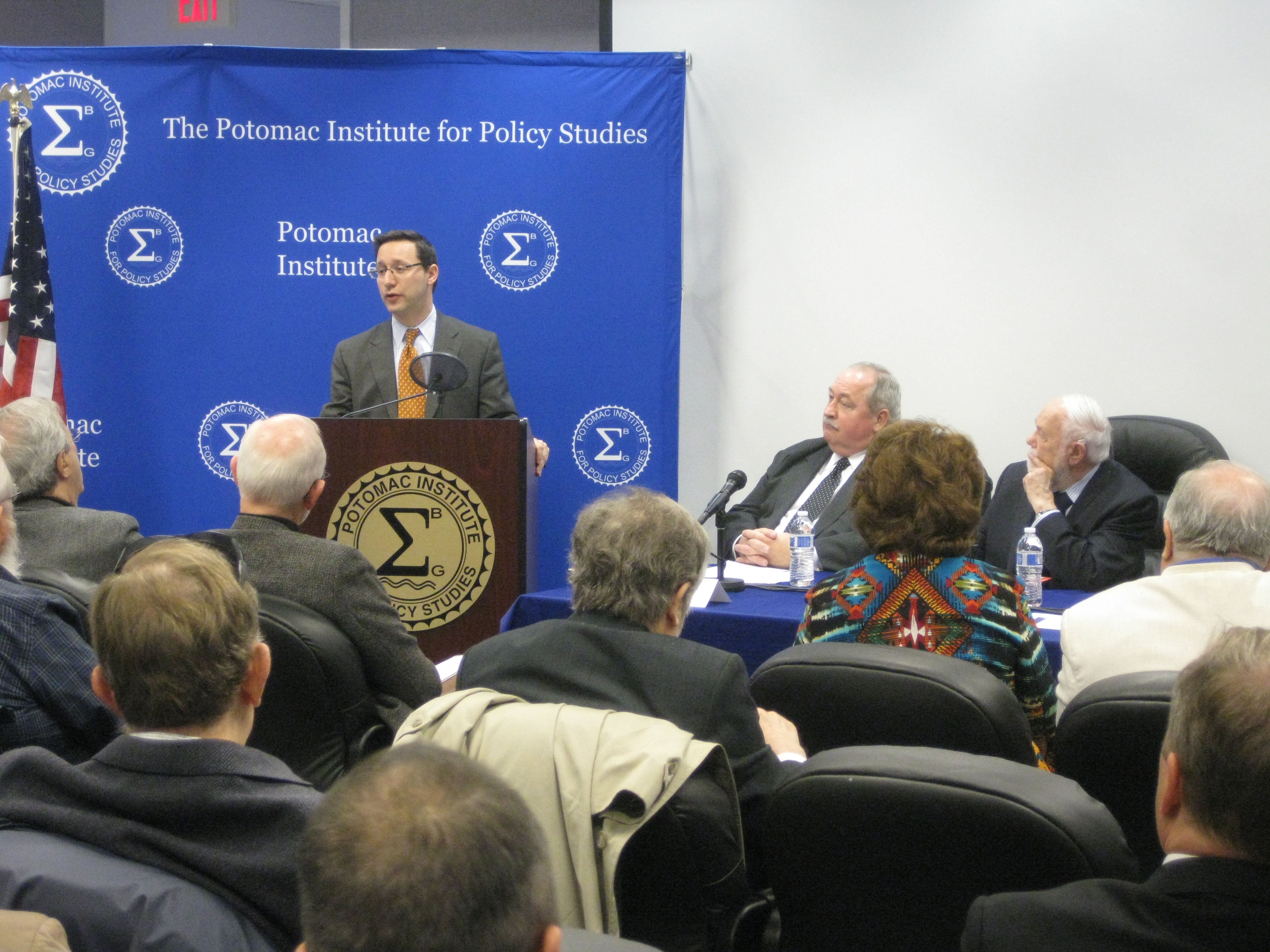As the European Union debates classifying Hizballah as a terrorist organization in light of recent events in Bulgaria and Cyprus, the Potomac Institute for Policy Studies hosted an event titled “Combating Hizballah’s Global Network.” Led by Inter-University Center for Terrorism Studies Director, Professor Yonah Alexander, and Potomac Institute CEO Mike Swetnam, a panel of experts discussed various aspects of the Hizballah threat, as well as the steps the international community can take to mitigate it. The three-person panel consisted of Dr. Matt Levitt from the Stein Program on Counterterrorism and Intelligence and the Washington Institute for Near East Policy, Professor Amit Kumar of Georgetown University and Dan Mariaschin, Executive Vice President at B’nai B’rith International. After their individual presentations, the panelists then answered questions from the audience.
The event was opened 
Professor Kumar followed Dr. Levitt’s comments with an extended discussion about Hizballah’s finances, particularly as they relate to South American criminal networks and the North American banking system. Examples of Hizballah’s penetration into North American financial markets included the recent Lebanese Canadian Bank case as well as various other money-laundering schemes that have been discovered over the years, ranging from cigarette to used car-smuggling rings. Also stressed was the importance of working with Latin American governments to help mitigate the threat posed by Hizballah’s links with criminal groups ranging from Mexico to Colombia and especially in the Tri-Border Region. Prof. Kumar noted, though, regardless of the origin of Hizballah’s funds, the funds’ destination is the global banking system and he pushed for the development of a “multi-front, concerted strategy” that would make it much harder for Hizballah to move and spend the money it raises both legally and illegally.
Building on the South American theme, Dan Mariaschin focused on the 1992 and 1994 Hizballah-linked bombings in Argentina. In the experience of Argentina, Mr. Mariaschin found a cautionary tale for Europe regarding how it decides to respond to the Burgas bombing and the arrest, and subsequent trial, of an admitted Hizballah operative in Cyprus. The initial Argentine investigations were fraught with mismanagement, but still turned up ample evidence against Islamic Jihad, Iran and Hizballah. Various Iranian officials – including the current defense minister, Ahmad Vahidi – have been implicated in the bombing and have issued arrest warrants issued for them by Argentina, as well as Interpol. Disconcertingly, though, Argentina recently signed an agreement with Iran to establish a joint “Truth Commission” to investigate the 1994 AMIA bombing – a Truth Commission that Mr. Mariaschin said would be anything but. Thus, as Argentina moves in the wrong direction, vis-à-vis dealing with Hizballah’s terrorist threat, Mr. Mariaschin argued that it is even more important for Europe to set the tone for how countries in every hemisphere respond to Hizballah’s terrorist actions.
